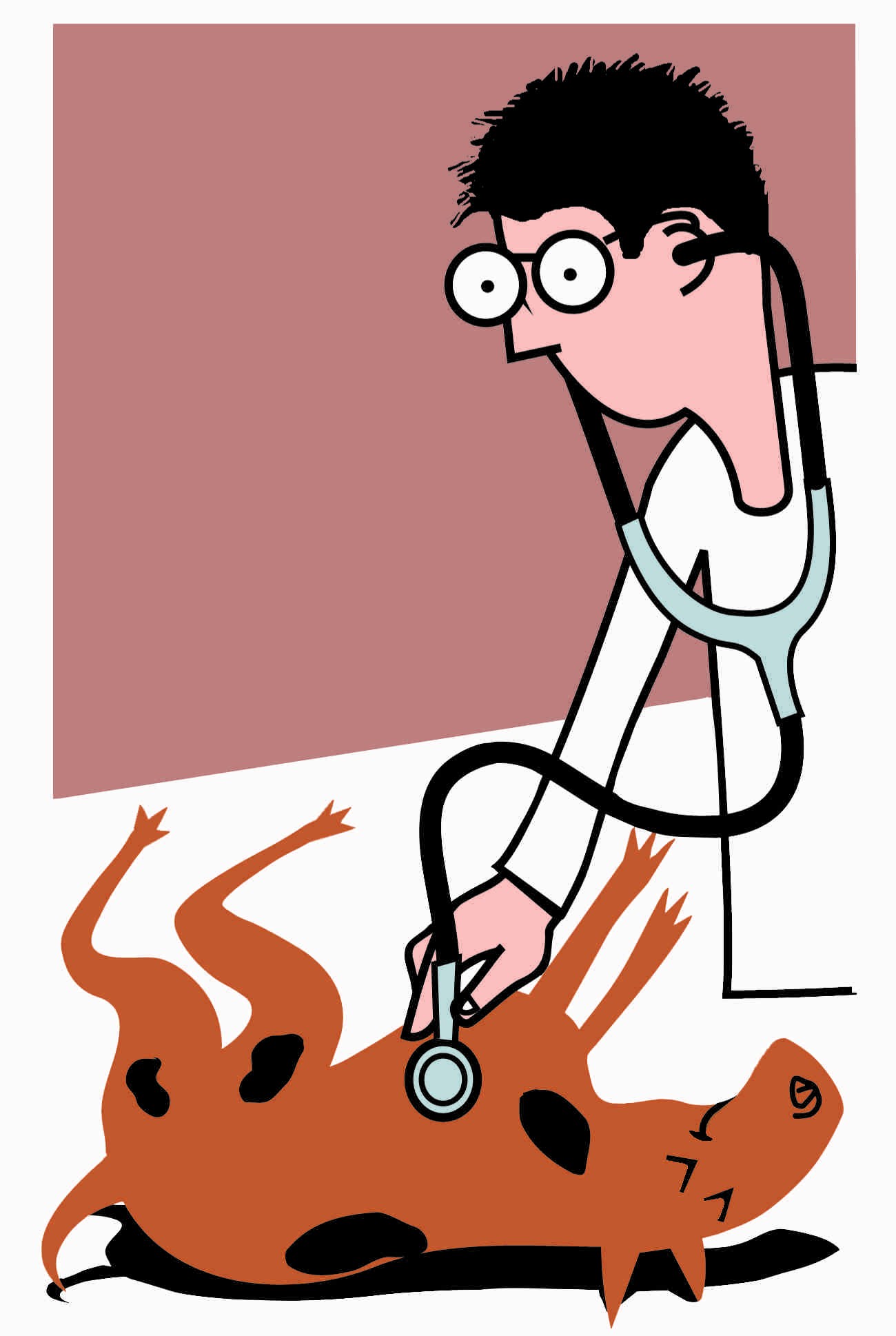Innocence revisited – 4
Your Editor tells two more moral tales derived from his experiences. If you would like to join us, write up to one thousand words and send your contribution to us.
My first patients
Not only was I an only child, but it happened that I had little to do with other children until I was seven. Wisely, my parents provided me with a cat and a dog who became my siblings and my playmates. As a result I have always had a particular empathy with these creatures, and to this day their successors are numbered among my close friends.
In later years, while I was learning to use the ophthalmoscope, there was a handsome black cat named Willy Woo. A placid animal, he would gaze peacefully into the distance while I made a minute inspection of his fundi. Those who have not seen the brilliant beetle’s-wing green tapetum of a cat in this way should mourn their loss, for the human retina is dross beside it.
Another staunch and loved friend was a fox terrier: ‘MacDougal’ to the world at large, but ‘Calcutta’ to the family. Those with knowledge of the Indian Mutiny will know why. He wore a black tie when we had visitors. It was to his praecordium that I applied my first stethoscope. The result was devastating: instead of the anticipated measured lub-dup, there was a tumultuous, hesitant chaos. Much study and thought suggested atrial fibrillation, so I took myself off to our family doctor for advice on therapy, which was given with kindness, but perhaps a touch of surprise.
My patient was seventeen by then, and in spite of my best efforts his basic condition progressed with the development of Stokes–Adams attacks. It is not easy to appear insouciant when one promenades with a dog which falls to the ground every so often in a grand mal, only to rise again, shake himself, and carry on indomitably.
After a while he developed a complete heart block, with a decreasing ventricular rate. His feet became cold, and we both knew that there would be no more walks together. One night his breathing became as slow and as automatic as his pulse, and I lay wretchedly in my bed, listening, until it stopped.
Sexual problems
The jet stopped climbing and settled into its long haul over the ocean. It was a small jet, and most of the passengers behind me had left their seats to sing island songs to a guitar at the back of the aircraft. Two or three beers along the way I settled into the usual trance which comes upon me in these circumstances, gazing at the fair-weather cumulus far below.
Even so, I saw her leave the crew compartment, and step out into the aisle. She wore a tangerine suit, its two pieces separately by a miraculously, subtly-formed expanse of skin which had the warmth and smoothness of old ivory. Her shining black hair cascaded over her bare shoulders.
Hesitating, she looked carefully around the cabin, giving me time for covert admiration of an oval face with its parts disposed in such perfect harmony that I became lost in its contemplation. In this distracted condition I failed to realise her gaze had caught mine, and held it, and that she had begun to move quietly towards me.
I hurried back to the clouds, but there was no refuge there, for she came to sit in the seat next to mine, curling up side- ways to look directly at me. From a brown paper bag she produced an enormous golden peach, which she ate with great care and solemnity, her eyes fixed upon me undeviatingly. It seemed to take forever, an eternity in which half of me felt like James Bond, and the other half despaired of being equal to whatever might be required of me next.
Then, the peach consumed and the stone returned to its paper bag, she leaned towards me and said,
‘You’re the psychiatrist aren’t you?’.
Incapable of speech, I could do no more than nod.
‘When we get there, you’ll be seeing my uncle. I’ve come to give you the social and family history.’
She did that, and then went away, back into the crew compartment, after which not even the sunset, with the burnished orange clouds casting their long indigo shadows over the Pacific, had much interest in it.
Lesson learned
Do not ask whether or not you are involved with those whom you meet professionally, ask only how much, and in what way. The professional role is a useful refuge, but not a secure one, and the psychiatrists’ habit of dividing attention equally between their patients and themselves has wisdom in it.
It keeps you out of trouble, too.

